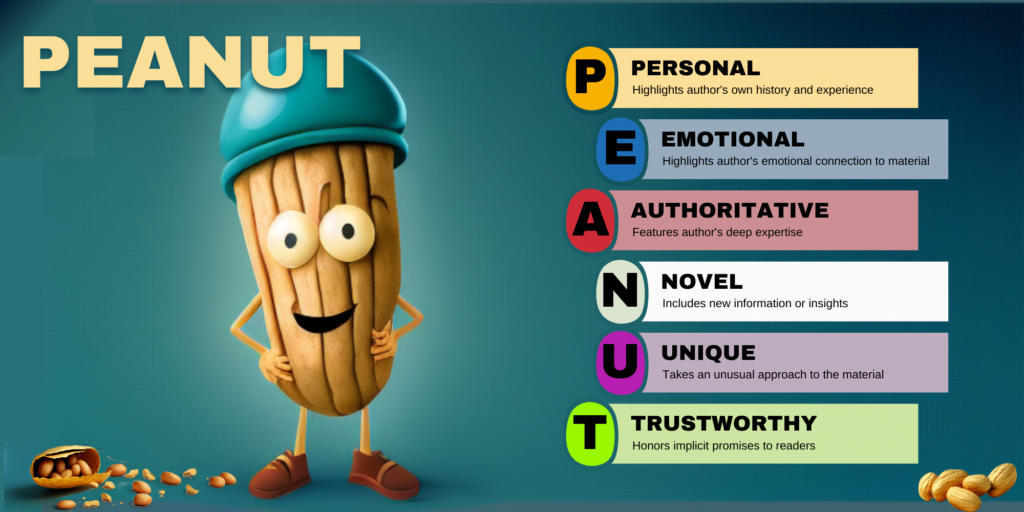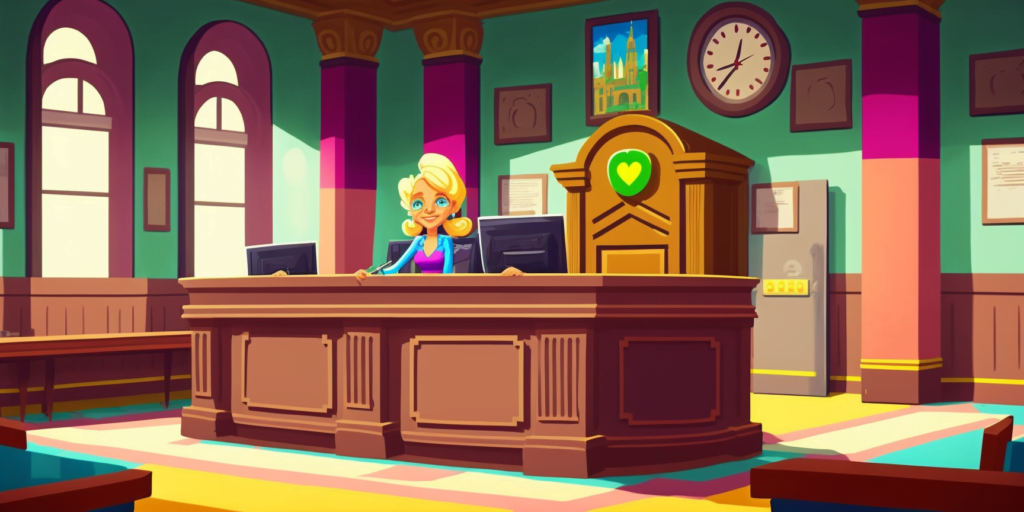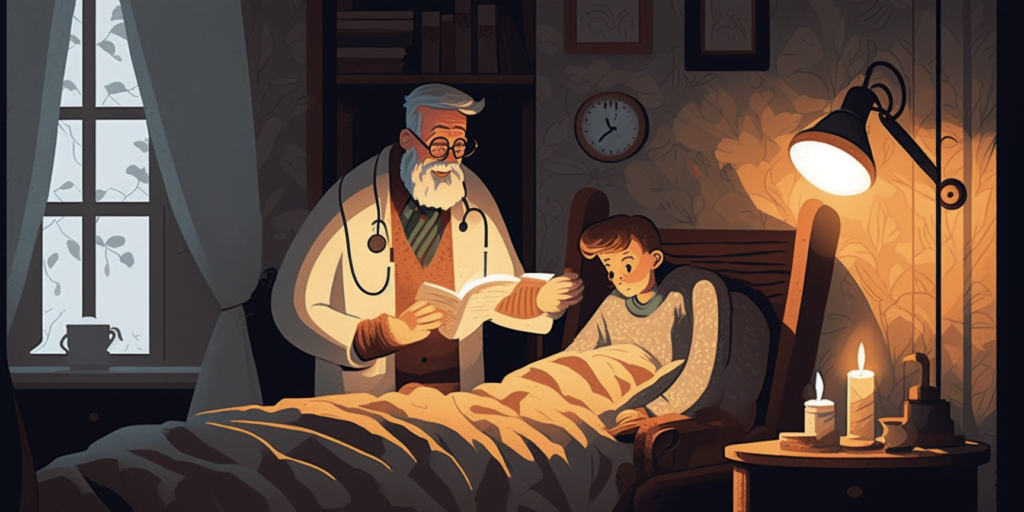
Here at MetaStellar, we’ve received thousands of short story submissions from speculative fiction authors, both new and established, since we launched in the summer of 2020.
But this spring’s submission cycle promises to be very different. Starting on March 1, people will be able to submit stories they wrote with the help of AI.
I regularly talk with other science fiction and fantasy editors, and many of them have already begun receiving what is clearly AI-generated content. Sometimes, the title of the story is simply whatever prompt the so-called writer gave to ChatGPT. The submissions read like Wikipedia summaries of stories, not actual stories themselves. The writing is flat. Uninspired. Mundane. Just what you’d expect from an AI.
Many editors — and writers — are sighing in relief. AI is no good at writing, they think. We’re safe.
No. No, friends, we are not safe.
“Today, the scale of the largest AI computations is doubling every six months, far outpacing Moore’s Law,” Google CEO Sunchar Pichal said in a post on Monday.
If you want to know what that means in visual form, just look at how far Midjourney came from spring 2022 to fall 2022:

That’s six months of evolution, right there.
That’s what’s happening with AI right now. ChatGPT is in the middle of the image up there — it looks vaguely like a kitten, but there’s missing eyes, and the fur isn’t quite right, and you have to give a lot of prompts to get anything close to what you want.
OpenAI used an AI model called GPT 3.5 to create ChatGPT. GPT 4 is on its way now. Google is planning to release its own version soon — and don’t forget that Google’s AI model, Lambda, was so good that one of its engineers thought it was sentient and Google had to fire him.
If you’re a writer and you think think you are safe from ChatGPT because its writing is bad, you are wrong.
And if you’re a writer and you think you’re going to be a huge success because you’ll start using ChatGPT to do all your writing for you — you are also wrong.
You can’t make a living having an AI write for you because everyone will be trying to do the same thing. You’ll vanish in a sea of indistinguishable AI-generated content. Even if that content gets very good very quickly, there will be no reason for people to buy your AI-generated stories versus somebody else’s.
But don’t lose all hope! Well, not just yet, anyway.
There are a few ways that you can distinguish yourself from an AI.
If you want to be successful as a human writer in an age of AI-generated content, you will need to lean into these principles, which I’m calling PEANUT — Personal, Emotional, Authoritative, Novel, Unique, and Trustworthy.

I coined the term two days ago, in an article aimed at helping non-fiction writers survive the AI tidal wave, but it applies to fiction writers, as well. But if you also write non-fiction to help pay the bills, I suggest that you check that article out and incorporate those principles into your writing now. If your job doesn’t allow you to, if your boss is forcing you to write formulaic content that could just as easily be produced by an AI, talk to your boss about changing the job description — or start looking for a different job as quickly as you can, so you can beat the rush.
You can use the PEANUT principles whether or not you use AI to help you with your writing.
And you don’t have to have all six of the PEANUT principles to stand out, but the more you can use, the better.
Here are each of those six PEANUT factors, in more depth.

P is for Personal experience
The person writing the book or story should talk about their own history with the topic.
So, for example, if you’re writing a book or story about an alien dying of a horrible disease you might mention in your author’s note, or in your Amazon bio page, that you yourself are struggling with the disease, and try to get as much of your personal experience into the story as you can.
If you’re writing a cozy mystery about a baker in a quaint medieval town, you might mention that you yourself are a baker, and include all the baking knowledge you have in the story.
People love geeky technical details as long as they contribute to the plot. Don’t believe me? Just watch a few hundred episodes of CSI.
An AI doesn’t have personal experience with anything, because it’s not a person. It doesn’t know what it feels like to be changed by an event, because it isn’t personally affected by events. Because, of course, it’s not a person. Well, not a person yet. Who knows what’s coming?
If you don’t have personal experience with a topic, you can get some. If you’re writing about a baker, find someone and interview them, extensively, about their day-to-day experience and find some details about the profession that you can use to bring it to life. Details that people won’t find by asking ChatGPT.
Good writers have always done this. They’ve always drawn deeply from their personal histories, or immersed themselves in interviews with real people in order to bring life to their settings and characters.
If your idea of researching a book or story is doing a Google search, you’ll have to step up your game.

E is for Emotional connection
Maybe one of the characters in your book or story is inspired by someone you know, someone you have a close personal connection to. Normally, you might keep this information private. Your readers don’t need to know everything about you. Well, that’s changing. If there’s a meaningful emotional connection there, you’re going to have to share it. Explain it in an author’s note, or in your author bio, or in your book’s promotional materials.
If you care about the characters for a deep, important reason, so will your readers. Help them make that connection.
Or maybe its the subject of the book that means so much to you. How does it feel that you’re suffering from a horrible disease? How does it feel when you pull a hot pie out of the oven and breathe in its scent?
Many successful writers are already doing this. Take Taylor Swift, for example. I’m using her because everybody knows her name and knows that she used to date Jake Gyllenhaal and that some of her lyrics are about him. One of the reasons people care about her music, and feel an emotional connection to it, is because they care about Taylor Swift and her personal experience.
Humans crave emotional connections with other humans. It’s hard-wired into our DNA.
An AI can’t give us that. Even if a chatbot is very convincing, and some people fall in love with it, deep down they know they’re falling in love with an animated character. Well, unless they have deep emotional problems.
I mean, I love Captain Marvel. She’s great. I’ll watch all the movies and maybe, maybe, pay a couple of bucks extra for an advanced screening ticket. But I really love Brie Larson, the actual woman who plays that character. If she shows up at my door and needs my car, I’ll give it to her. No questions asked. Heck, I’d give her a kidney. Or Paul Rudd.
Not because I like the characters those people play in the movies, though I do. But because I’ve seen how they act as people. I watch them on talk shows, I read about them in the industry gossip mags. Sure, probably most of that stuff is carefully curated and partially manufactured. And maybe Taylor Swift never even dated Jake Gyllenhaal. But my point is that my perception of who these people are colors and informs my enjoyment of the work they produce and deeps my personal attachment to them.
AIs don’t have them. I mean, an AI might have a back story, but everyone knows that it’s fictional. An AI is just an invented character.
But a human author is a real person.
I know some writers think it’s crass to make their personal lives part of their promotional strategy. They’d prefer that their work stood on its own merits, and they, themselves, faded anonymously into the background. I mean, there’s a reason why most of us became writers instead of, say, talk show hosts.
I recommend that if you do decide to go the reclusive loner route that you make it part of your author brand. Like J.D. Salinger. Give people a reason to be interested in you, to care about your work.

A is for Authority
Why are you the one writing on this topic? What makes you an expert?
This is a little bit more relevant to non-fiction writers, but it can apply to fiction writers, as well, depending on what they’re writing about.
For example, if you’re writing a space opera set in a future space military, and you’re a professor of military history, then tell people about this fact. They’ll read your books with a different appreciation for the story. They’ll know that you’re not just making this stuff up whole-cloth, that there’s actual meat there.
If you’re writing crime novels, and you’re a licensed criminalist, let your readers know. Or if your books have a medical component, and you are a retired neurosurgeon. Or if you’re writing about AI and you’ve been covering this space as a tech journalist.
This is different from personal experience. You have personal experience with a topic and not be an authority on it and you can be an authority without having personal experience. I’m my day job, I’m a tech journalist, but I’m not an authority on journalism in general. There are college professors out there who study journalism and are much bigger experts on it than I am. But I do have experience as a journalist, which a professor might not. Similarly, I’m somewhat of an authority on AI, since I cover the topic and have talked to a lot of AI experts and developers — but I haven’t actually programmed any AIs myself.
ChatGPT isn’t an authority on any topic. It is aware of everything that’s commonly known on a subject, but a human authority can provide context that an AI can’t. A human will know which information is important and useful and, mostly importantly, will know the stuff that hasn’t been written down by anyone yet.

N is for Novel
AIs know the information they’ve been trained on. By definition, if something is brand new and hasn’t been written yet, they won’t know it.
Again, this is mostly relevant to non-fiction writers. For example, maybe you just went to a conference, talked to a bunch of experts, and learned some cool stuff that most people don’t know yet. Or maybe you were experimenting with a new app and figured out a new hack, or conducted some research or ran a survey and have new results to share, or got an exclusive scoop from a source.
For fiction writing, this can translate to a novel setting, a novel plot idea, or a new style of writing.
AIs have trouble with this.
For example, I asked ChatGPT for five ideas for sci-fi stories that are completely original and have never been seen before.
It suggested the following:
- In a future where people have the ability to transfer their consciousness into robots, a person must navigate the consequences of a world where robots are becoming more human-like, and humans are becoming more robotic.
- A story set in a universe where parallel realities exist, and a person must navigate the consequences of their actions in one reality affecting other parallel realities.
- In a future where people have developed the technology to create black holes, a person must navigate the consequences of a world where black holes are being used as a source of energy, but with the potential to destroy the universe.
- A story set in a future where people have the ability to travel to different dimensions, and a person must navigate the consequences of a world where different dimensions are colliding and merging.
- In a future where people have developed the technology to transfer their consciousness into plants, a person must navigate the consequences of a world where plants are becoming more sentient, and humans are becoming more plant-like.
They all sound pretty familiar to me. In fact, I think I’ve seen all those movies.
But more important than originality — after all, AIs can randomly combine different ideas and create brand-new combinations that haven’t been seen before — is to have original ideas that mean something. Maybe they connect to current events, or to the author’s personal experience, or to readers’ fears.

U is for Unique
You, my dear writer, are not new. You’ve been around for a while. But you are unique.
There are things about you that make you special, that set you apart from other writers. Your personal experience, your skills, your personality, your physical appearance, your network of connections, your hopes and dreams, these all set you apart from other people.
AIs don’t have that.
The ChatGPT you’re interacting with is exactly the same as the ChatGPT on my computer screen.
Lean into your uniqueness. Let your writing — and your marketing materials — reflect all that is special about you, the fun parts and maybe also the weird and quirky and embarrassing parts that maybe you don’t want to share with people.
Too often, author bios are sterilized to the point where they could be describing just about anyone. So inoffensive that there’s nothing in them at all except the most generic statements.

T is for Trust
Trust is critical for non-fiction writers. If the article has been paid for by a corporation it undermines our trust in that writer and in that publication.
But trust is also important for fiction writers.
Readers should be able to trust you to, say, treat your characters with respect, to be consistent about how your world works, to create a satisfying ending, to fulfill their expectations.
I trust Lee Child to deliver action-packed novels with satisfying conclusions that tie up all the loose ends. That’s why I read the Jack Reacher books, and will read every single new book that he puts out.
There are other authors who I trust with deep character development, or for having cozy, quirky settings. It’s an implicit contract between the reader and the writer. Sometimes, it’s explicit. The writer will come right out and say that this particular aspect of the writing process is important to them. They might talk about how much research they do, for example, or how much care they put into crafting satisfying romantic happily-ever-afters.
It is possible to have trust in non-human entities. For example, I trust Marvel to produce exciting movies. Though, frankly, I was very disappointed with The Eternals. But it’s more that I have trust in individual people working for the company, like Kevin Feige, James Gunn, and Taika Waititi.
As an author, you build trust by continuing to create work that lives up to the promises you make to your readers and by explaining to readers what it is that you’re trying to do, why you’re trying to do it, and how you’re going to keep doing it in the future.
Watch Maria discuss the PEANUT principles in the video below:

MetaStellar editor and publisher Maria Korolov is a science fiction novelist, writing stories set in a future virtual world. And, during the day, she is an award-winning freelance technology journalist who covers artificial intelligence, cybersecurity and enterprise virtual reality. See her Amazon author page here and follow her on Twitter, Facebook, or LinkedIn, and check out her latest videos on the Maria Korolov YouTube channel. Email her at [email protected]. She is also the editor and publisher of Hypergrid Business, one of the top global sites covering virtual reality.

